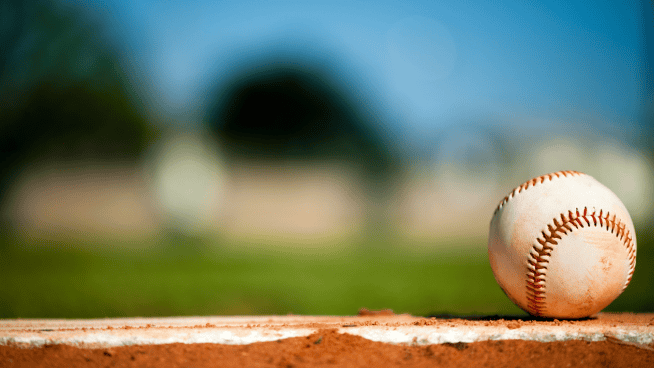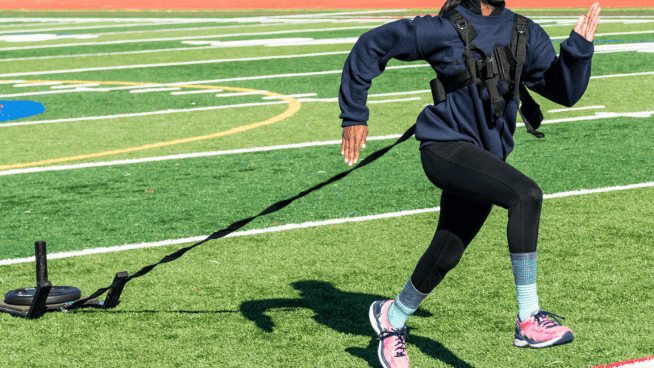The Elaborate Game Day Routines Behind Corey Kluber’s Unshakeable Performance
Article first published in 2017
Corey Kluber might be the most unshakeable man in professional sports.
It’s why fans have affectionately dubbed the ace “Klubot.” Good luck trying to gauge how a game is going based on Kluber’s body language—it doesn’t matter if he’s on his way to a complete game shutout or he just gave up a game-tying home run. His expression remains coolly stoic either way.
That laser focus is a huge reason Kluber has become the frontrunner for the 2017 A.L. Cy Young award, an improbable accomplishment when you consider how he started the season. After his first six starts of 2017, Kluber’s ERA sat at a ghastly 5.09. The team then placed him on the DL with a back injury, where he stayed for an entire month. Upon his return, Kluber began steamrolling opposing line-ups with his deadly four-pitch arsenal. Despite missing a considerable amount of time, Kluber now leads all pitchers in WAR and is tied for the MLB lead in wins. His 2.35 ERA is second only to Clayton Kershaw among qualified starters and his 252 strikeouts are second only to Chris Sale.
One reason Kluber’s so unshakeable on the mound? He’s found a routine that works for him, and he sticks to it through thick and thin. Regular throwing sessions and film study obviously play a big role in Kluber’s ability to baffle hitters, but we’re talking about the less obvious stuff—habits you wouldn’t even notice unless someone pointed them out. Some people may call them superstitions. Check out these two clips that show both Kluber’s pregame and in-game routines:
Corey Kluber’s routine. pic.twitter.com/MKJGrDdSCo
— Rob Friedman (@PitchingNinja) August 28, 2017
Corey Kluber–Between Pitches Routine (a couple of batters of Kluber’s routine). pic.twitter.com/ed50BeA6qG
— Rob Friedman (@PitchingNinja) September 13, 2017
Lots of MLB players have pregame routines, and Kluber is no different. As far as I can tell, there’s no information available about how Kluber came to make this his pregame ritual. But there’s one thing we can be sure of—he wouldn’t do it if it didn’t instill some amount of confidence. George Gmelch, a professor of anthropology at the University of San Francisco who has extensively studied the role of superstition in baseball, told NYMag.com that such rituals are almost entirely about confidence. “What they’re really doing is giving themselves confidence,” Gmelch explains. “If I do these little rituals, then I’m gonna feel confident going into this activity, and I can succeed and do well.” Who knows how Kluber began placing his glove in centerfield and making Indians pitching coach Mickey Callaway place a ball on top of it, but what matters now is that the ritual gives him confidence.
Kluber’s in-game routine—which consists of some order of adjusting his right sleeve, licking the fingers on his right hand and wiping said fingers on the seat of his pants—is now second nature. It’s an idiosyncratic tic that Kluber probably believe serves a utilitarian purpose—perhaps licking his fingers helps him get a better grip on the ball, for example. But whether it actually helps him pitch better in a physical sense or not, there’s little doubt it’s a consistent confidence builder for the 31-year-old pitcher.
Think of it like how each NBA player has their own unique routine at the free throw line. If they don’t do that routine, it’s an opportunity for doubt to creep into their mind. A 1986 study from the University of Iowa found that a group of collegiate and high school basketball players with a regular free throw routine shot about 10 percent worse from the charity stripe when they were prohibited from using their pre-shot routine. “The players performed free throws more effectively when using their preliminary pattern. Thus, rather than being purely superstitious, the preliminaries to free throw shooting do appear to contribute to the accuracy of the shot,” the study’s authors concluded.
In a sport where a fraction of an inch can be the difference between a double down the line or a dribbler back to the pitcher, why wouldn’t Kluber have routines that can give him additional confidence? While we’d love to know more about how Kluber came to settle on these routines, don’t count on him revealing anything soon. “I can tell you players don’t like to talk about superstitions, though. They feel like it might take away from the power of the lucky thing. Of course, that’s a superstition of its own,” Chris Bader, who currently serves as the sport psychologist for the University of Colorado’s athletic department, once told the Los Angeles Times.
In concert with his maniacal preparation, Kluber’s routines allow him to pitch with confidence and conviction. That can make all the difference in the world for a pitcher. “[All pitchers in the MLB] have talent, or they wouldn’t be here. The one thing that is the separator is that ability to let go, block out external factors and focus on the next thing,” Callaway once told STACK.
As the Indians roll toward the pressure cooker that is the MLB postseason, don’t expect Kluber to change a thing. After all the success he’s had with his preparation and his routines, why would he?
Photo Credit: Nick Cammett/Getty Images
READ MORE:
RECOMMENDED FOR YOU
MOST POPULAR
The Elaborate Game Day Routines Behind Corey Kluber’s Unshakeable Performance
Article first published in 2017
Corey Kluber might be the most unshakeable man in professional sports.
It’s why fans have affectionately dubbed the ace “Klubot.” Good luck trying to gauge how a game is going based on Kluber’s body language—it doesn’t matter if he’s on his way to a complete game shutout or he just gave up a game-tying home run. His expression remains coolly stoic either way.
That laser focus is a huge reason Kluber has become the frontrunner for the 2017 A.L. Cy Young award, an improbable accomplishment when you consider how he started the season. After his first six starts of 2017, Kluber’s ERA sat at a ghastly 5.09. The team then placed him on the DL with a back injury, where he stayed for an entire month. Upon his return, Kluber began steamrolling opposing line-ups with his deadly four-pitch arsenal. Despite missing a considerable amount of time, Kluber now leads all pitchers in WAR and is tied for the MLB lead in wins. His 2.35 ERA is second only to Clayton Kershaw among qualified starters and his 252 strikeouts are second only to Chris Sale.
One reason Kluber’s so unshakeable on the mound? He’s found a routine that works for him, and he sticks to it through thick and thin. Regular throwing sessions and film study obviously play a big role in Kluber’s ability to baffle hitters, but we’re talking about the less obvious stuff—habits you wouldn’t even notice unless someone pointed them out. Some people may call them superstitions. Check out these two clips that show both Kluber’s pregame and in-game routines:
Corey Kluber’s routine. pic.twitter.com/MKJGrDdSCo
— Rob Friedman (@PitchingNinja) August 28, 2017
Corey Kluber–Between Pitches Routine (a couple of batters of Kluber’s routine). pic.twitter.com/ed50BeA6qG
— Rob Friedman (@PitchingNinja) September 13, 2017
Lots of MLB players have pregame routines, and Kluber is no different. As far as I can tell, there’s no information available about how Kluber came to make this his pregame ritual. But there’s one thing we can be sure of—he wouldn’t do it if it didn’t instill some amount of confidence. George Gmelch, a professor of anthropology at the University of San Francisco who has extensively studied the role of superstition in baseball, told NYMag.com that such rituals are almost entirely about confidence. “What they’re really doing is giving themselves confidence,” Gmelch explains. “If I do these little rituals, then I’m gonna feel confident going into this activity, and I can succeed and do well.” Who knows how Kluber began placing his glove in centerfield and making Indians pitching coach Mickey Callaway place a ball on top of it, but what matters now is that the ritual gives him confidence.
Kluber’s in-game routine—which consists of some order of adjusting his right sleeve, licking the fingers on his right hand and wiping said fingers on the seat of his pants—is now second nature. It’s an idiosyncratic tic that Kluber probably believe serves a utilitarian purpose—perhaps licking his fingers helps him get a better grip on the ball, for example. But whether it actually helps him pitch better in a physical sense or not, there’s little doubt it’s a consistent confidence builder for the 31-year-old pitcher.
Think of it like how each NBA player has their own unique routine at the free throw line. If they don’t do that routine, it’s an opportunity for doubt to creep into their mind. A 1986 study from the University of Iowa found that a group of collegiate and high school basketball players with a regular free throw routine shot about 10 percent worse from the charity stripe when they were prohibited from using their pre-shot routine. “The players performed free throws more effectively when using their preliminary pattern. Thus, rather than being purely superstitious, the preliminaries to free throw shooting do appear to contribute to the accuracy of the shot,” the study’s authors concluded.
In a sport where a fraction of an inch can be the difference between a double down the line or a dribbler back to the pitcher, why wouldn’t Kluber have routines that can give him additional confidence? While we’d love to know more about how Kluber came to settle on these routines, don’t count on him revealing anything soon. “I can tell you players don’t like to talk about superstitions, though. They feel like it might take away from the power of the lucky thing. Of course, that’s a superstition of its own,” Chris Bader, who currently serves as the sport psychologist for the University of Colorado’s athletic department, once told the Los Angeles Times.
In concert with his maniacal preparation, Kluber’s routines allow him to pitch with confidence and conviction. That can make all the difference in the world for a pitcher. “[All pitchers in the MLB] have talent, or they wouldn’t be here. The one thing that is the separator is that ability to let go, block out external factors and focus on the next thing,” Callaway once told STACK.
As the Indians roll toward the pressure cooker that is the MLB postseason, don’t expect Kluber to change a thing. After all the success he’s had with his preparation and his routines, why would he?
Photo Credit: Nick Cammett/Getty Images
READ MORE:










